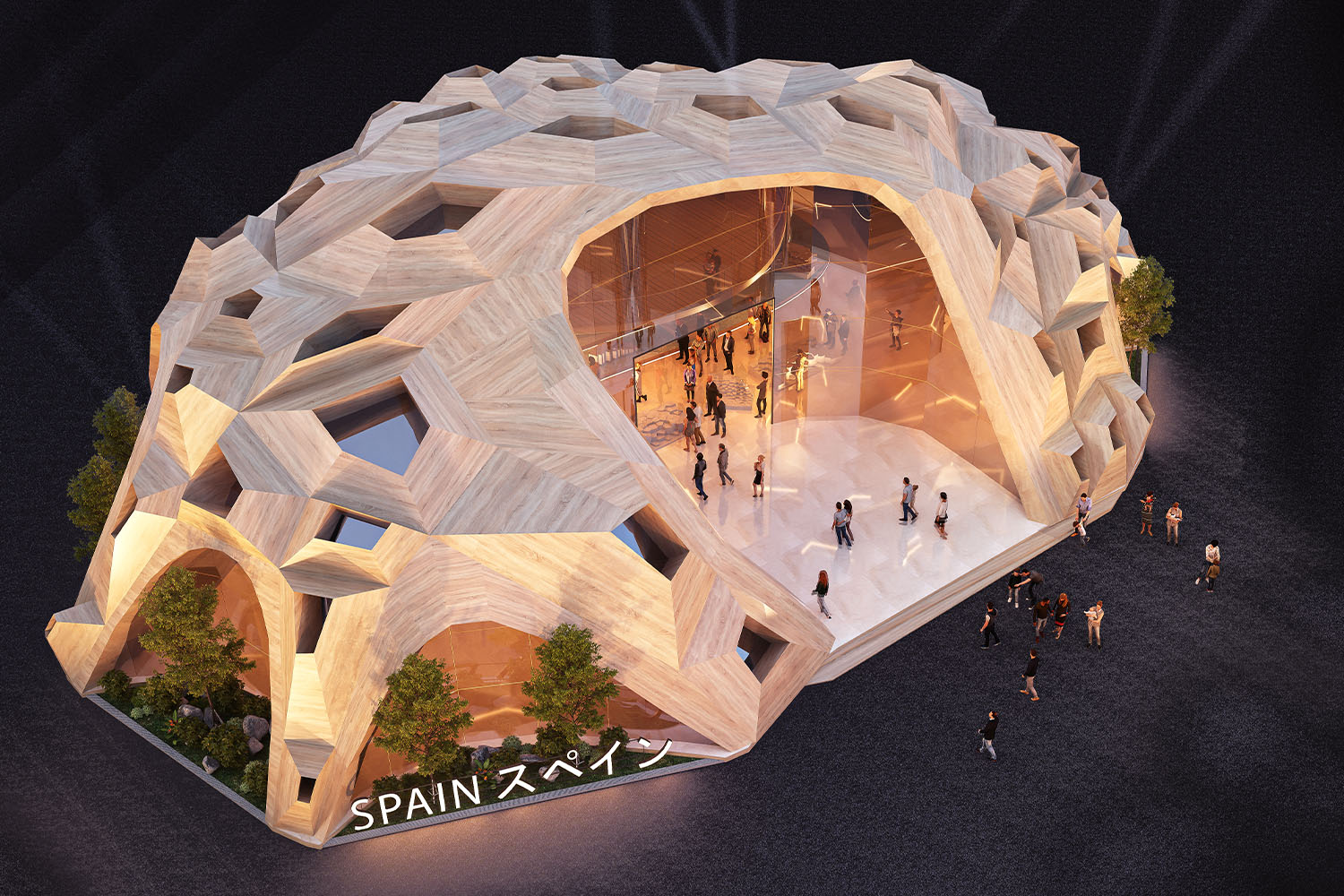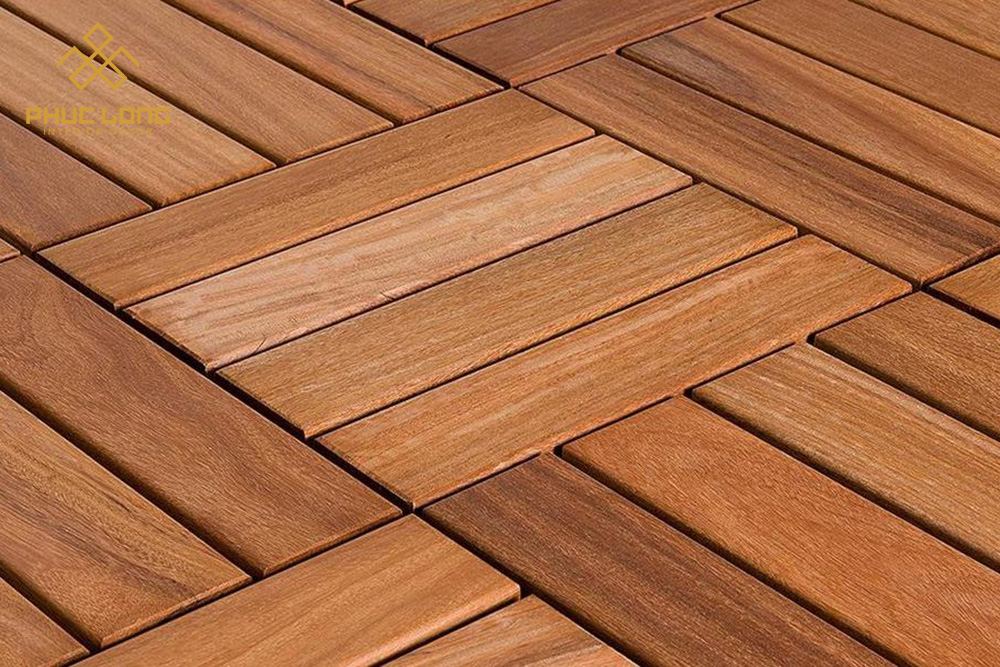If you’ve ever delved into the world of wood, you must have wondered about the pros and cons of butcher block countertops and why they are so popular. In this article, VietnamWood will list the pros and cons of butcher block countertops, as well as how to ensure their durability and maximize their usability.
Read more: 7 Best DIY Butcher Block Desk Ideas
Butcher block definition
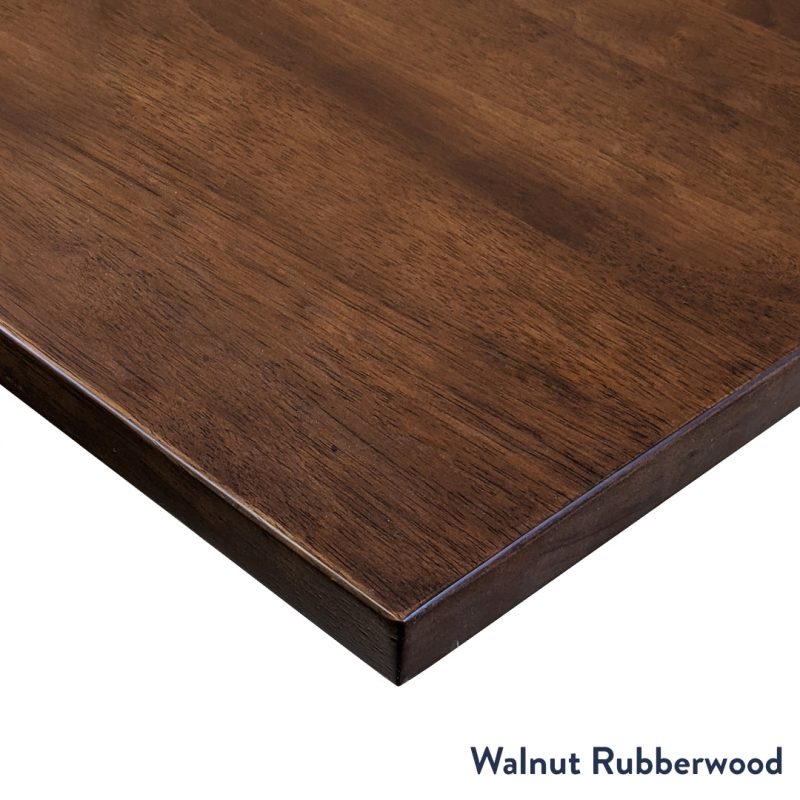
Among the many types of countertops, what does ‘butcher block’ mean, what material is it made from, and where does it originate from? Before diving into the pros and cons, VietnamWood will clarify these fundamental concepts about butcher blocks.
The term “butcher block” originates from its historical use in butcher shops and meat-processing facilities, where the surface was used for cutting and preparing meat.
However, today, butcher block countertops are widely used in residential kitchens as well. They can be made from various types of wood, with maple and oak being common choices due to their hardness and durability.
A “butcher block” is a type of countertop or surface typically made from wooden strips or blocks that are glued together to create a sturdy, solid surface. It is commonly used in kitchens, particularly for food preparation.
Butcher block countertops are known for their durability and resistance to cutting and chopping, making them well-suited for cutting and slicing various foods. They provide a warm and natural appearance to kitchens and are often favored for their aesthetic appeal and functionality.
Overall, butcher block countertops are a popular choice for those who appreciate the look and feel of wood in their kitchen and want a versatile surface for cutting and food preparation.
Pros and cons of butcher block countertops
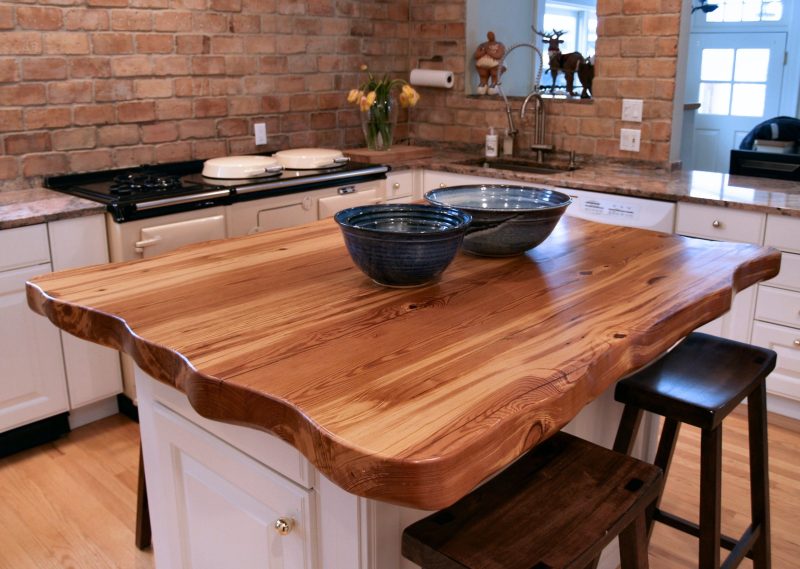
Recently, butcher block countertops have gained significant user support. Let’s delve into the pros and cons of butcher block countertops through a comprehensive analysis provided by VietnamWood in the table below:
|
Pros of butcher block countertops |
Cons of butcher block countertops |
| Aesthetic Appeal: Butcher block countertops provide a warm, natural, and timeless look to your kitchen. They can complement various design styles, from rustic to contemporary. | Maintenance: Butcher block countertops require regular maintenance. They should be sealed with mineral oil or beeswax to prevent drying out and protect them from stains and water damage. Neglecting maintenance can lead to issues like warping and cracking. |
| Versatile: These countertops are versatile and functional, serving as a great surface for chopping, slicing, and food preparation. They can also be used as a dining surface or kitchen island. | Susceptibility to Water Damage: Wood is sensitive to moisture. Prolonged exposure to water or high humidity can cause the wood to swell, warp, or develop mold and mildew. It’s crucial to wipe up spills promptly and ensure proper sealing. |
| Durability: High-quality butcher block made from hardwoods like maple or oak is known for its durability and resistance to wear and tear. When properly maintained, it can last for many years. | Scratches and Dents: While butcher block can be sanded to remove scratches and dents, it is more prone to these issues than harder countertop materials. |
| Repairable: Any damage to the surface, such as scratches or burns, can often be repaired by sanding and refinishing the countertop, extending its lifespan. | Cost: High-quality hardwood butcher block can be relatively expensive, especially compared to budget-friendly countertop options like laminate or tile. |
| Comfortable: Wood is more forgiving to knives and dishes compared to harder materials like granite or quartz. It also provides a softer and warmer surface to work on. | Limited Heat Resistance: Butcher block is not as heat-resistant as stone countertops. Placing hot pans directly on the surface can lead to scorch marks and damage. |
| Eco-Friendly: Many homeowners appreciate the use of wood as a renewable and sustainable material in their kitchens, which aligns with eco-friendly choices. | Food Safety: Because the wood is porous, it may harbor bacteria if not properly cleaned. Regular cleaning and sanitation are essential to maintain food safety. |
|
Customization: Butcher block countertops can be customized in terms of wood species, grain pattern, and finish, allowing for a unique and personalized look. |
Noise: Wood surfaces can be noisier than other materials when it comes to cutting and chopping activities. |
Best ways to protect butcher block countertops
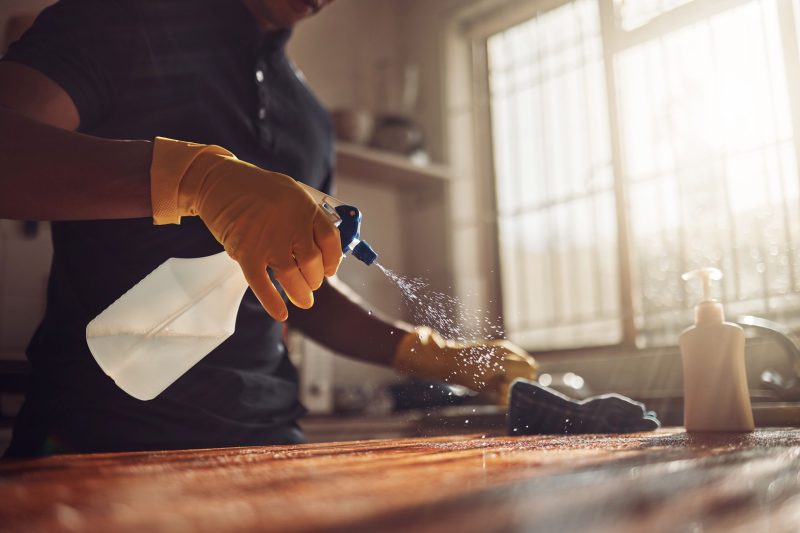
In summary, butcher block countertops offer a timeless and attractive appearance, but they require regular maintenance and may not be as durable or heat-resistant as some other countertop materials.
Your choice should depend on your preferences, cooking habits, and how well you are willing to maintain and care for the countertop. Understanding this, we will provide below some ways to protect your butcher block countertops.
Regular Cleaning: Clean the surface with a mild dish soap and warm water. Avoid harsh chemicals or abrasive scouring pads that can damage the wood.
Avoid Excess Moisture: Wipe up spills promptly to prevent water damage. Avoid leaving wet or damp items on the countertop, and use trivets or hot pads to protect it from hot cookware.
Use Cutting Boards: Always use cutting boards when chopping or cutting to prevent deep scratches and knife marks on the countertop.
Keep the Countertop Dry: After cleaning, make sure to dry the surface thoroughly to prevent moisture from penetrating the wood.
Seal with Mineral Oil or Butcher Block Conditioner: Apply a food-grade mineral oil or specialized butcher block conditioner to the surface regularly (usually once a month or as needed) to prevent the wood from drying out, maintain its luster, and protect it from stains.
Regular Maintenance Schedule: Create a maintenance schedule and stick to it to ensure the longevity of your butcher block countertops.
Remember that proper maintenance is key to keeping butcher block countertops in good condition. Regular sealing, cleaning, and avoiding excessive moisture or heat will help protect and prolong the life of your butcher block surface.
VietnamWood – provides leading butcher block countertop suppliers contacts
VietnamWood has a network of over 1,000 wood manufacturing businesses in Vietnam and 5,000 global businesses in the industry. Therefore, for any of your butcher block buying needs, we can provide assistance. Please contact us for more detailed and specific advice.
Through the article we just shared, we hope that you have gained a deeper understanding of butcher block countertops and how to best maintain them.
We anticipate that in the future, this type of countertop will continue to maintain its position and be hard to replace due to the excellent advantages it offers to users compared to other countertop materials.



